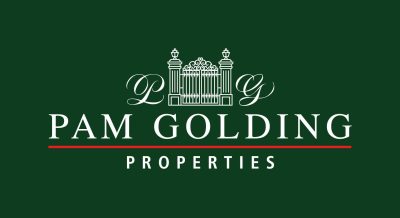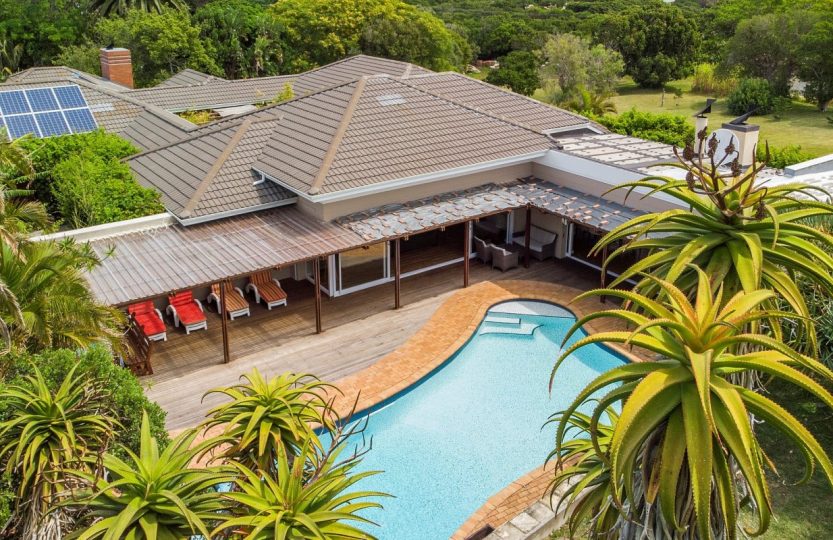The far-reaching lockdown experienced by homeowners in South Africa has no doubt provided much food for thought and room for introspection, most likely mainly around re-evaluating lifestyle and long-term goals, but also their immediate surrounds – their homes.
Says Dr Andrew Golding, chief executive of the Pam Golding Property group: “Having been isolated in the confines of our homes for a substantial period of time is prompting many homeowners to review the way they live – not only from an economic perspective, given the recessionary environment, but also in terms of a realisation as to what is really important in their lives. And this includes their homes, whether owned or rented.
“The question is, what impact will this have on the real estate market in South Africa? We can probably assume that many people will in future value a simpler, more cost-effective lifestyle, taking into account that the importance or ranking of certain criteria may have changed when considering a purchase, or a rental.
“For instance, we are already seeing more cash buyers – including investors, returning to the marketplace, capitalising on opportunities to acquire value-for-money residential properties in the current buyers’ market, including those up to R1 million which require zero transfer duty. Their key criteria will include affordability – whether for themselves or tenants, as well as convenient location, close to amenities, including schools and the workplace. It may include a larger living space to enjoy quality family time, or a more compact space for singles or young couples starting out and wishing to conserve capital. Some may even decide to relocate to more decentralised areas or secondary towns, away from congested cities, or areas on the periphery of cities, yet still easily accessible and more suited to their needs, including career and family.
“Bearing in mind that economic factors will play a major role for businesses implementing recovery and cost-saving strategies, more people are likely to continue to work from home, which means their living requirements will need to accommodate this.
“There’s no doubt that household incomes will remain under pressure for some time due to the negative economic impact of the Covid-19 lockdown, as well as rising costs. Recently it has been announced that Eskom has been given the go-ahead to further increase the costs of electricity, which is coupled with the looming spectre of further loadshedding once lockdown ends. Municipal tariffs form a significant portion of costs which erode monthly budgets and disposable spend, so it makes good sense to try to reduce these as much as possible and gear one’s lifestyle to suit the challenges of today and going forward.”
Says Anthony Stroebel, head of strategy and innovation for Pam Golding Properties and a director of the Green Building Council of South Africa (GBCSA): “It’s also apparent that post lockdown, living off the grid is likely to look increasingly appealing to home owners, buyers and tenants both from a cost-effective perspective as well as adding value to properties.
“Reducing monthly costs and implementing energy saving solutions – as far as budget permits – in order to live as much off the grid as possible will become much more commonplace. Some may even relocate to achieve this.
“As a consequence, in future we expect to see an even greater emphasis on living off the grid as people seek to become more self-sufficient, with their own electricity, water and even urban food gardens as a means of affording a measure of relief, independence and security in these uncertain times.”
“With over 16.7 million households in South Africa, homes are a significant consumer of water and energy resources as well as generators of waste. Any contribution towards reducing this consumption and output not only has the potential to help reduce the collective environmental footprint, it also adds value to a residential property, particularly in terms of desirability. According to the GBCSA, 27% of the energy produced in South Africa is consumed by the residential sector, which also accounts for 60% of municipal water and sanitation sales, and contributes 44% of municipal waste.
“Energy, water and waste have measurable baselines and benchmarks, which, along with other ‘sustainable living’ indicators, have been refined by the GBCSA into a green home rating tool (EDGE certification) which enables a householder to assess where their home sits on the sustainability scales. The rating tool – which generates a score out of 100 – covers three distinct spheres of influence – behaviour; performance, namely measured water, energy and waste performance; and asset improvements, such as insulation. This will give South African householders the information and tools they need to transform their homes for healthier and more sustainable and environmentally prosperous living.”
There are strong value propositions which this Green Home Rating System offers across various stakeholder segments. For householders themselves, this includes simple, comparative benchmarking, access to compelling incentives and rewards and streamlined links to solutions and resources. A marketable ‘green home’ certificate is also offered, aimed primarily at the rental and ownership transaction stage of homes.
Adds Stroebel: “Because a formal certification is likely to only be pursued when a home is bought or sold, for their own information householders can make their own assessments and identify improvement areas which would result in monthly energy and cost savings from the immediate to the medium and longer term. Householders who wish to undertake a formal Green Home Rating ie EDGE certification can contact the GBCSA on 08610 42272 or visit www.gbcsa.org.za.”
The practical benefits are numerous, says Stroebel. “This simple tool offers rewards and incentives for achieving ‘green goals’, compares your performance to others and tracks performance, provides a clear measurement of sustainability and clear benchmarking framework for reducing operating costs and providing more appealing homes.”
Pam Golding Properties is currently marketing a number of properties to buy or rent, with meaningful energy saving features, or even completely off the grid. These include homes in Sardinia Bay – 10 minutes from Port Elizabeth, an eco-estate with ‘house zero’ homes on the banks of the Olifants River in Limpopo, a game farm with potential as an eco-estate on the Crocodile River in Komatipoort overlooking the Kruger National Park, a three-bedroom house in Kloof in KwaZulu-Natal, and well-priced homes selling off plan in Hoedspruit.
For further information contact Pam Golding Properties at headoffice@pamgolding.co.za.

